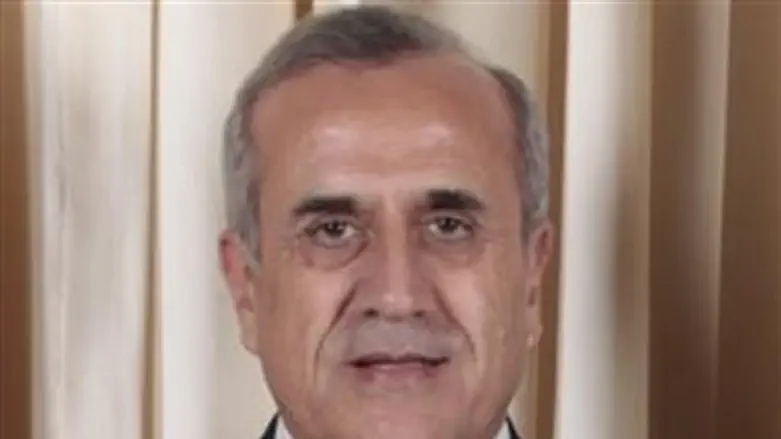
Lebanese president Michel Sleiman vowed Tuesday to resume all-party talks on Hizbullah's arms stockpiles. Earlier this week Hizbullah rejected a UN demand that it disarm.
“I underscore my intention to continue efforts to provide the necessary conditions for the resumption of dialogue between the various parties in order to protect the Lebanese and to make every effort to agree on a defense strategy for Lebanon,” Sleiman told members of Lebanon’s diplomatic corps.
Hizbullah's arsenal and terror militias are a contentious issue in Lebanon – and have led to bitter infighting between the Hizbullah-dominated government of Prime Minister Najib Mikati and opposition leaders.
Hizbullah maintains it will retain its arms in order "to defend Lebanese territory" in the absence of a strong military force in Lebanon.
However, opposition leaders have repeatedly charged Hizbullah has used its arms to undermine the sovereign will of the Lebanese people and exercise undue influence on the nation's politics.
In June of 2011 the Hague-backed Special Tribunal for Lebanon indicted four Hizbullah terrorists for the 2005 assassination of late Prime Minister Rafiq Hariri.
The government of former Prime Minister Saad Hariri - the slain prime minister's son - was brought down due to a political crisis stemming from his backing of the STL - and his drive to see the terror organization disarmed.
Opposition leaders - including Hariri - also charge Hizbullah has drawn Lebanon into destructive wars with neighboring Israel by pursuing a unilateral foreign policy under the guise of 'resistance.'
In December 2011, Sleiman condemned firing of rockets at Israel from Hizbullah-controlled southern Lebanon, as well as bombings targeting UNFIL peace keepers in the area.
Sleiman told Lebanese soldiers in December that the “three pillars” which have protected Lebanon throughout the year are the Lebanese Army, the country’s pluralist democratic system, and “the financial system."
Sleiman's remark was a clear departure from the long-stated mantra in Lebanese politics that the "three pillars" that guarded Lebanon are the Lebanese Army, pluralistic democracy, and the 'resistance' – a pervasive reference to Hizbullah.
Sleiman repeated the sentiment on Tuesday when he thanked Lebanese soldiers for “fighting international terrorism."
Analysts say, however, that Hizbullah's disarmament would not automatically lead to peace between Israel and Lebanon.
During his address Sleiman said that Lebanon rejects the naturalization of 'Palestinians' in his country despite clear legal obligations under international law for Beirut to normalize their status.
“Lebanon rejects any form of naturalization, owing to the [Palestinians'] right of return," he said.